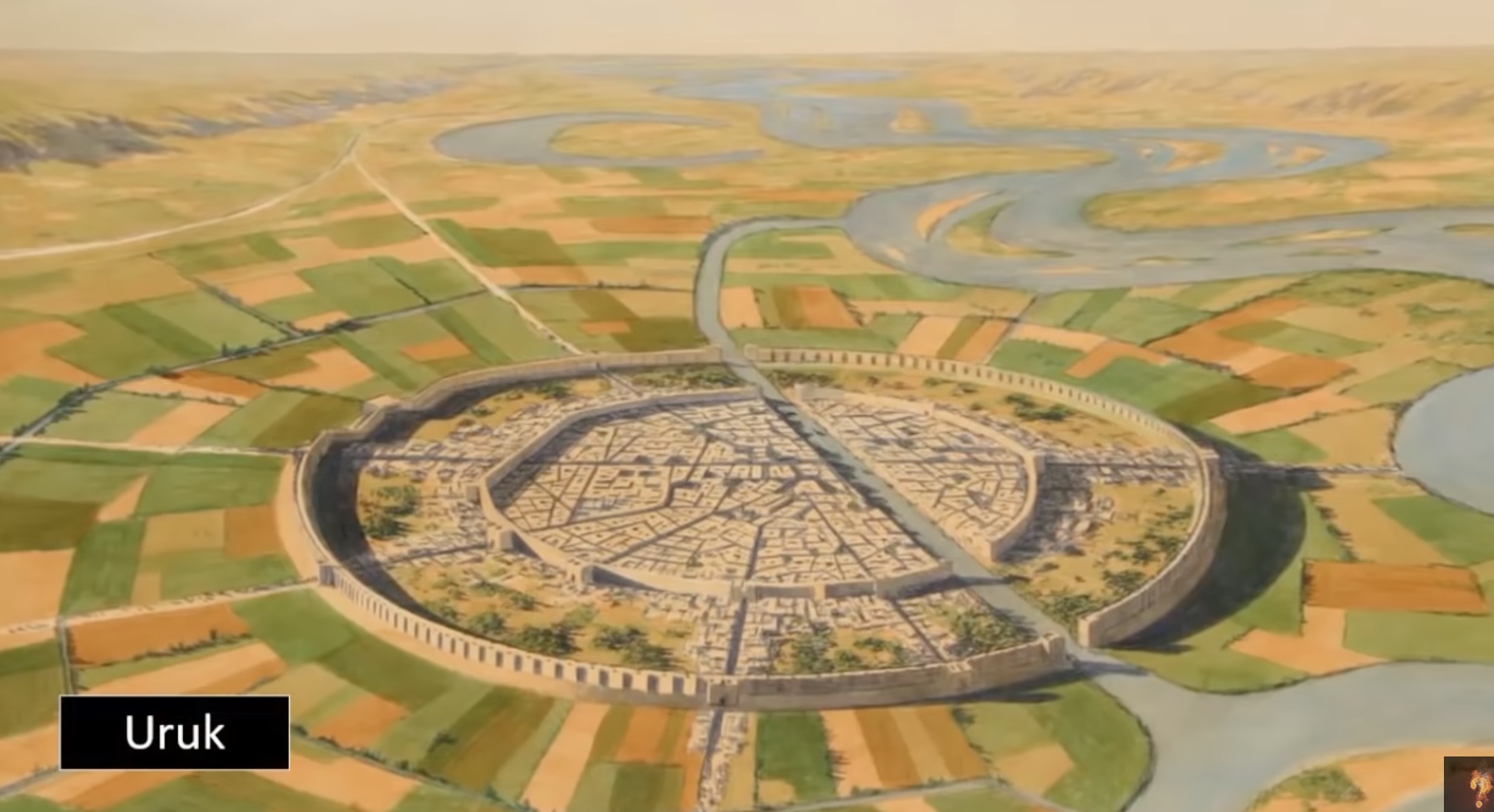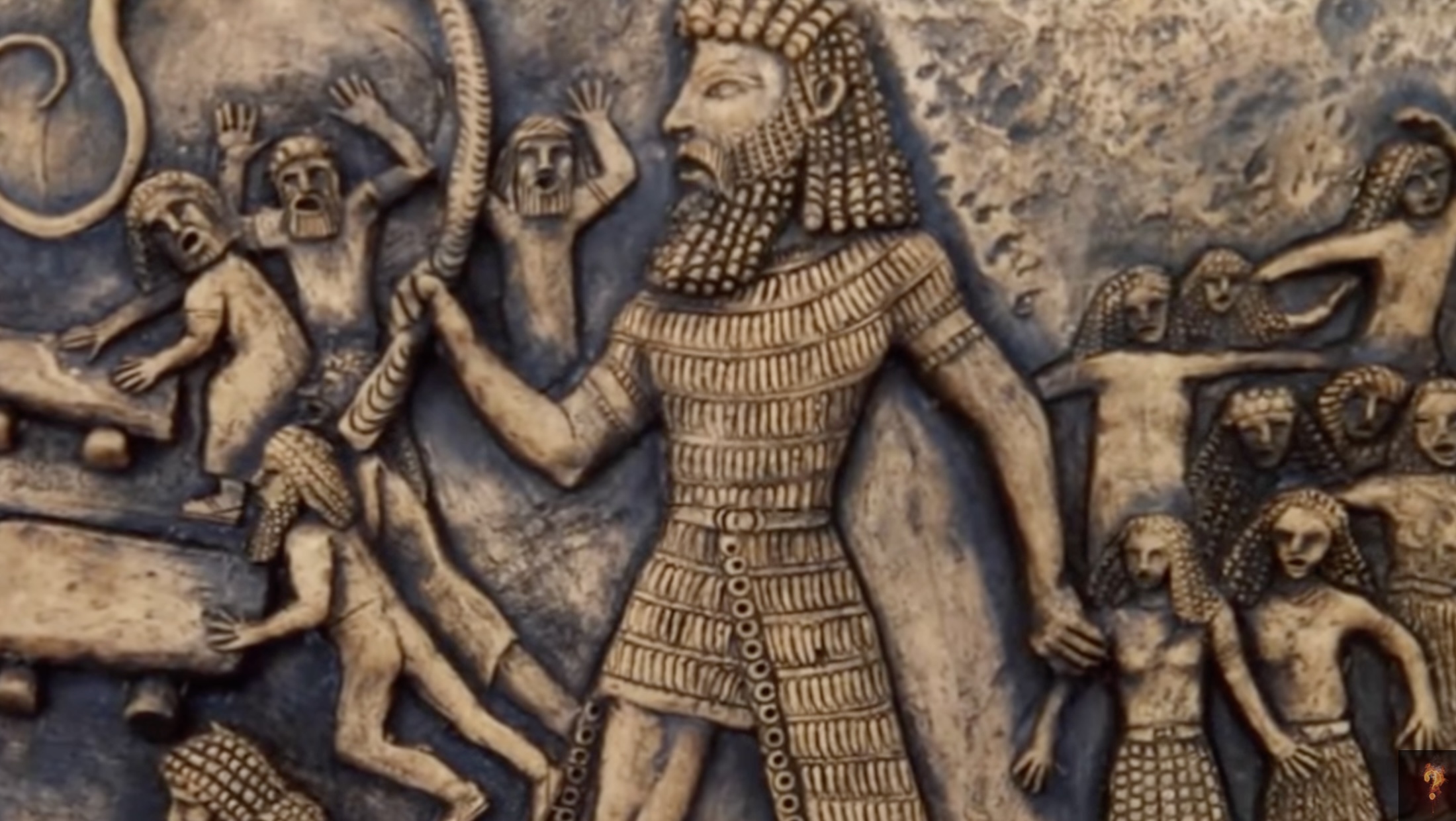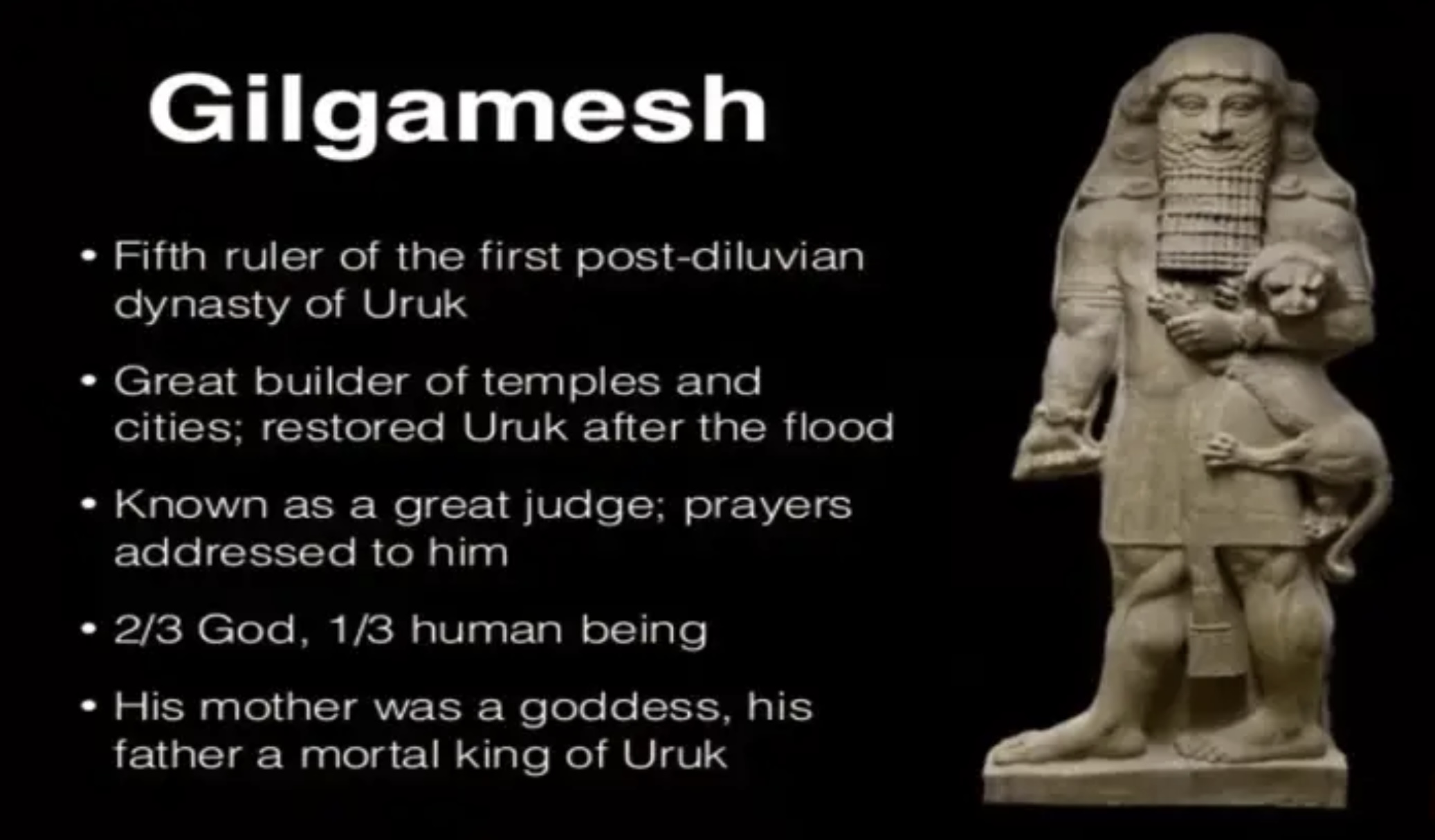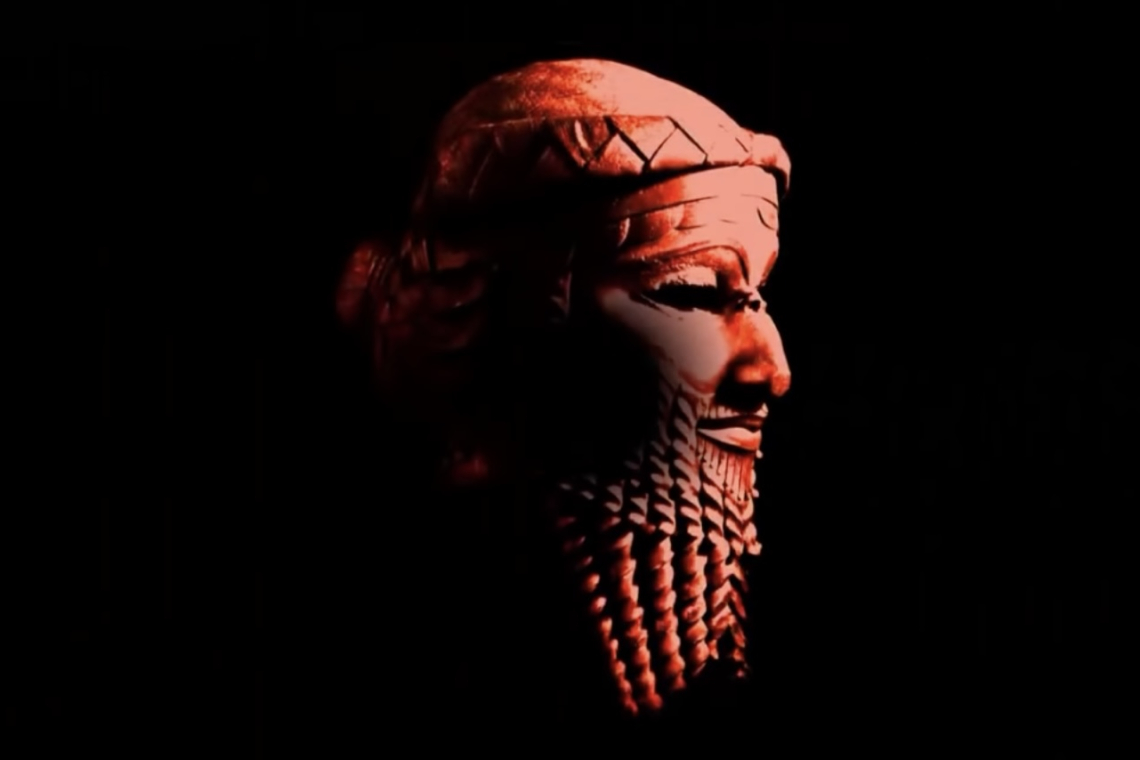In the vast expanse of ancient Mesopotamia, amidst the sands of time, lies a tale that transcends the realms of myth and reality. Enter the realm of King Gilgamesh, a figure shrouded in mystery and whispered rumors of extraterrestrial origins. For those who delve into the annals of history with an eye towards the stars, the legend of Gilgamesh takes on a whole new dimension—one that ignites the imagination and stirs the soul.

Picture this: a civilization on the brink of discovery, teetering on the edge of the unknown. Many have speculated that the great cities of Uruk and beyond owe their grandeur to the influence of Gilgamesh, a king whose legacy spans the cosmos. From the heart of Uruk, Gilgamesh ruled with an otherworldly charisma, leaving an indelible mark on the fabric of time itself.
But what if there's more to Gilgamesh than meets the eye? What if, hidden within the pages of ancient texts, lies a truth stranger than fiction—a truth that hints at extraterrestrial origins and cosmic connections? It is said that Gilgamesh's exploits were so extraordinary, so beyond the realm of mortal comprehension, that they could only be explained by the intervention of beings from beyond the stars.

Fast forward to the dawn of the 21st century, a time of upheaval and revelation. In the midst of conflict and chaos, whispers of astonishing discoveries echo through the corridors of power. Among these whispers, one name stands out: Gilgamesh. In 2003, as the world watched with bated breath, a team of intrepid explorers unearthed a site that seemed to mirror the fabled tomb of the legendary king.

York Fassbinder, a scholar of ancient mysteries, drew parallels between the unearthed structure and the mythical tomb described in the epic of Gilgamesh. But the plot thickens. Leaked footage, purportedly showcasing the tomb of Gilgamesh, spread like wildfire across the internet, sparking a frenzy of speculation and intrigue. Could this be the smoking gun, the evidence that Gilgamesh was more than just a mortal king?
As the world grapples with the implications of these revelations, one cannot help but wonder: Are we ready to confront the possibility that Gilgamesh's story is not just a tale of ancient kings and gods, but a cosmic saga of epic proportions? Are we prepared to embrace the idea that our ancestors may have had encounters with beings from beyond the stars, shaping the course of human history in ways we can scarcely imagine?

In the labyrinth of time, where truth and legend intertwine, the mystery of King Gilgamesh beckons us to explore the furthest reaches of our imagination. Whether he was a mortal monarch or a celestial emissary, Gilgamesh's legacy endures as a testament to the enduring quest for truth and enlightenment. As we gaze up at the stars and ponder the mysteries of the universe, let us remember the words of the ancient sages: "The truth is out there, waiting to be discovered."



